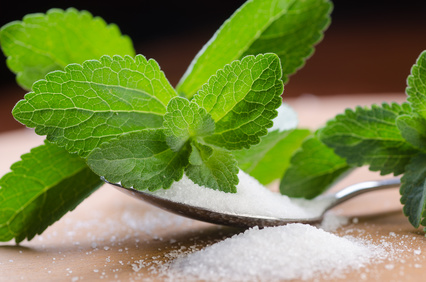Stevia is a natural sweetener derived from the South American herb known as stevia rebaudiana. Global demand for this exciting sweetener is now shooting through the roof, especially after receiving that crucial nod, the US FDA approval. The demand trajectory is so sharp that it’s now projected that the global market for the Kenya stevia could hit $10 billion in a few years. The sweetener is largely used as a no-calorie sweetener in China, Japan, Malaysia, and other Asian countries.
Promising zero-calorie content, the leaves of Kenya stevia are believed to be 30 times sweeter than natural sugar with a pure extract being 400 times sweeter than sugar. Stevia extracts are also used in beverages, confectionery, industrial food and pharmaceutical flavoring.
Introduced in Kenya just two years a go, Stevia, the now famous sweetener that is heaped with amazing health benefits is grown commercially in a number of counties in Kenya including Bungoma, Bomet, Nakuru, Narok, Kericho and Uasin Gishu. Successful trials have also been done in areas such Embu, Meru and Kirinyaga. The Kenya stevia is now a source of impressive income for over 2000 farmers in Kenya, thriving best in areas with latitudes between 20 -25 degrees, meaning it can be grown in most parts of the central and eastern regions of the country.
Perhaps the greatest advantage of sweet Stevia lies in the fact that it requires lower inputs of energy, land, and water to produce the same amount of sweetness that you would normally find in other naturally growing sweeteners. It typically requires a fifth of the land and much less moisture or water to provide the level of sweetness that equals other mainstream sweeteners including sugar.
In Kenya, for instance, stevia is grown only on a third of the land with the rest of the acreage being devoted to other farming projects,making it possible to maintain agricultural diversity which is certainly an important element of healthy and sustainable ecosystems.
The ability to propagate stevia economically is a key factor in the profitability of its farming. In the case of equatorial farms (Kenya) it’s possible to achieve 4 – 6 commercial harvests per year. With no known diseases and pests affecting stevia in Kenya as yet, the crop is turning out to be a sweet deal for Kenyan farmers.
Selina Wamucii is proud to be a leader in growing and exporting Stevia from Kenya. We are working hard to ensure that the global demand is satisfied, wherever the sweetener is required. We also buy all stevia leaves form the farmers as part of our corporate social responsibility – thereby easing the post- harvest procedures and marketing.
In conjunction with farmers, the government and all stakeholders, Selina Wamucii is at the forefront of ensuring that Kenya’s Stevia is sufficiently enough to meet global demand.


